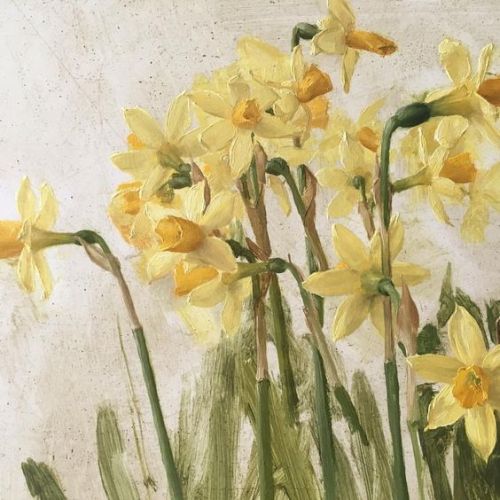





♥ Hello, spring!
Five thousand years ago, the Sumerians called the night ngi, the stars mul, and the moon Nanna.
Four thousand years ago, the Akkadians called the night mūšu, the stars kakkabū, and the moon Sîn.
Three thousand years ago, the Hittites called the night išpanza, the stars haštereš, and the moon Arma.
Two and a half thousand years ago, the Greeks called the night nux, the stars astra, and the moon Selênê.
Two thousand years ago, the Romans called the night nox, the stars stellae, and the moon Luna.
Kings and queens and heroes looked up at them. So did travelers coming home, and little children who sneaked out of bed. So did slaves, and mothers and soldiers and old shepherds, and Sappho and Muršili and Enheduanna and Socrates and Hatshepsut and Cyrus and Cicero. In this darkness it didn’t matter who they were, or where they stood. Only that they were human.
Think of that tonight, when you close your window. You are not alone. You share this night sky with centuries of dreamers and stargazers, and people who longed for quiet. Are you anxious? The Hittites were too: they called it pittuliyaš. Does your heart ache? The Greeks felt it too: they called it akhos. Those who look up to the stars for comfort are a family, and you belong to them. Your ancestors have stood under Nanna, Sîn, Arma, Selênê and Luna for five thousand years. Now its light is yours.
May it soothe you well.
To be gentle is a magnificent practice.
Gentleness is not weak, it is very strong. When you hold an infant, you must be gentle but you must also be firm. You cannot be weak or you will drop and harm the baby.
Gentleness is focused. When we are absent-minded or inattentive, we can be hurtful and damaging. It takes presence and awareness to be gentle.
At the same time, gentleness allows us to be relaxed and humorous, authentic without tension and contrivance.
Practice your gentleness.
Be gentle towards yourself. Be gentle towards nature. Be gentle towards other people.
i love all the words we have that mean traveler. i love the shades of difference between wanderer and rambler and rover. i love the boldness of adventurer and the purposefulness of explorer, the lawlessness of vagabond and the capability of wayfarer, the quiet reverence of pilgrim and the wild rootlessness of nomad.
This is the most quintessentially Welsh response possible, and I would expect no less.
becausegoodheroesdeservekidneys:
Well if anyone wondered what Wales is getting up to during the Quarantine, someone set up a Facebook group called Côr-ona (“côr” being the Welsh word for choir), and are using it to teach each other descants for famous Welsh music and songs. It was set up three days ago and already has 10000 members. One of those was an accidentally-added non-Welsh speaker who is very confused, but everyone is delighted by his bewildered presence. Occasionally someone will go for a walk on a beach or mountain and upload a video of themselves singing one of the descants they’ve learned.
